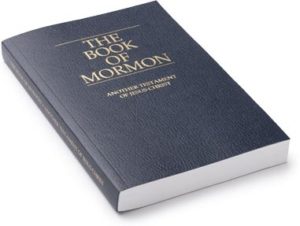 I once sold encyclopaedias. I had a sample volume, richly bound, with examples of articles from different sections of the complete set, and a fold-out, life-size illustration of the whole set to lay out before prospective customers. I could talk about the quality of the product, the essential and comprehensive nature of the contents, and the long-term value of owning the books. Had I been asked in-depth questions about the articles, however, I could not have answered. I was expert in the product, not in the content.
I once sold encyclopaedias. I had a sample volume, richly bound, with examples of articles from different sections of the complete set, and a fold-out, life-size illustration of the whole set to lay out before prospective customers. I could talk about the quality of the product, the essential and comprehensive nature of the contents, and the long-term value of owning the books. Had I been asked in-depth questions about the articles, however, I could not have answered. I was expert in the product, not in the content.
When young Mormon missionaries knock your door they are like the encyclopaedia salesman. They know their product, their message, but their knowledge and understanding have no depth. Even older, more experienced, Mormons you might meet socially, or in work, don’t really know what it is to confidently negotiate their faith. They know the message of Mormonism, but there is no real depth to their knowing. Don’t make the mistake of expecting too much of them, ask basic questions that cause them to think.
1. What must I do to be saved? The typical answer to this question is, ‘I hope when the time comes I will be found worthy.’ Don’t underestimate the power of your quiet but confident confession of faith when faced with someone’s uncertainty. When a Christian confidently points out Paul taught, ‘by grace you are saved, through faith…not of works.’ – Eph.2:8-9 a Mormonism points out James 2:2- ‘Faith without works is dead’ – to teach a gospel of works. They see this as a ‘contradiction in the Bible. It’s important to understand Paul is writing as a missionary about how to be saved, James is writing as a church leader about how to live saved. The best testimony is someone saved by grace living saved.
2. What hope do you have of eternal life? Mormonism teaches that what Christians think of as salvation, dwelling with God eternally, is a privilege won by striving for worthiness. This is achieved by following the ‘Plan of Salvation,’ what they call, ‘God’s Plan of Happiness,’ You begin with becoming a Mormon and work through the requirements of the plan. Jesus said, ‘I tell you the truth, whoever hears my word and believes him who sent me has eternal life [present possession], and will not be condemned [future hope]; he has crossed over from death to life. [past event]’ – John 5:24. The Christian stands in life today. Where does the Mormon stand?
 3. Why are so many Mormon teachings not found in the BOM? The Book of Mormon (BOM) is supposed to contain ‘the fullness of the everlasting gospel’ according to it’s introduction. But doesn’t teach key Mormon doctrines such as Celestial (temple) Marriage, the Mormon priesthoods, Father, Son, and Holy Spirit as three separate gods, man’s pre-mortal existence, men becoming gods, sacred temple ordinances, vicarious ordinances such as baptism for the dead, and more.
3. Why are so many Mormon teachings not found in the BOM? The Book of Mormon (BOM) is supposed to contain ‘the fullness of the everlasting gospel’ according to it’s introduction. But doesn’t teach key Mormon doctrines such as Celestial (temple) Marriage, the Mormon priesthoods, Father, Son, and Holy Spirit as three separate gods, man’s pre-mortal existence, men becoming gods, sacred temple ordinances, vicarious ordinances such as baptism for the dead, and more.
4. Why are there no maps in the back of the BOM? The BOM is, ‘a record of God’s dealings with the ancient inhabitants of the Americas…’ according to it’s introduction, mainly covering a period from 600BC to 400AD. Bible Archaeologists have found Ninevah, Bethel, Dan, Gezer, Capernaum, Ephesus, as well as artefacts and inscriptions. Bibles routinely have maps that help us identify the important places where key Bible events occurred.The BOM has no maps and Mormons can’t tell us where BOM people lived, or BOM events took place. Not a city, not a town or village. Not a wall, not a pot, not a shard, or arrowhead. Not an inscription, or a record yet New World Archaeology is as old as Old World Archaeology.
5. Why is the ‘open canon’ of Mormonism closed? Mormonism teaches the canon of Scripture is not closed. This explains the addition of the BOM and other LDS ‘scriptures.’ But ‘scripture’ has not been added to the LDS canon for over a hundred years. The current LDS prophet, Russell M Nelson, is the seventeenth to hold the office. Of the seventeen, fourteen have added nothing to the ‘open canon’ of the LDS Church, two have added one section each to the Doctrine and Covenants. One of those two was Brigham Young, Smith’s immediate successor.
6. Why is an open canon necessary? If the BOM does contain the fullness of the everlasting gospel, and makes up for a corrupted Bible as Mormons claim, why does it need to be added to?
7. Why do Mormons continue to use the King James Bible? Joseph Smith produced his own ‘inspired translation’ of the Bible. If the Bible passed down to us has passed through so many corrupt translators’ hands as to not be reliable, as the LDS Church teaches, why don’t Mormons use the Joseph Smith Translation?
8. Why does the Book of Mormon contain extensive, word-for-word quotes from the King James Bible? 27 of 239 chapters are directly lifted from the King James Bible, as well as other extensive quotes. They teach that the Bible has been corrupted as it has come down to us through ‘profane hands’, yetthe BOM even contains the italicised words that were added into the KJV text by the translators in the 16th and 17th centuries.
9. Why do Mormons encourage people to pray about the Book of Mormon? The Bible encourages prayer, of course, but inquirers are taught to test every truth claim by, ‘examin[ing] the Scriptures daily to see if these things are true.’ (Acts 17:11) Compare that with Moroni’s promise in the BOM; ‘I would exhort that ye should ask God…if these things are not true…and…he will manifest the truth of it unto you, by the power of the Holy Ghost…’ (Moroni 10:4) Paul taught Timothy, ‘ Scripture is able to make you wise for salvation through faith in Jesus Christ. All Scripture is God-breathed…that the man of God may be competent, equipped for every good work.’ (2 Tim.3:15-16) Why don’t LDS missionaries encourage people to established truth to test new truth claims, as Paul did?
10. Why are Mormon temple ceremonies secret? Mormons will say they are not secret but sacred, but they are sworn to never discuss them outside the temple. Prospective members cannot know what goes on in the temple until they enter it, by which time they are as committed as it is possible to be. Yet Jesus said, ‘I have said nothing in secret’ (John 18:20) and Paul insisted he had ‘given up secret and shameful ways,’ instead ‘setting forth the truth plainly.’ (2 Cor.4:2)

